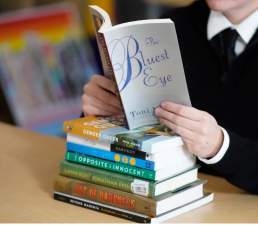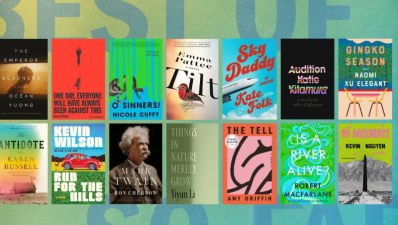Should You Still Read the Classics in the Digital Age?
Amid the rapid development of artificial general intelligence (AGI) technology, an information cocoon woven by algorithms is gradually enveloping the globe. As generative AI begins mass-producing text, and knowledge acquisition becomes as easy as clicking a screen, human civilization stands at a historic turning point.
Amid the rapid development of artificial general intelligence (AGI) technology, an information cocoon woven by algorithms is gradually enveloping the globe. As generative AI begins mass-producing text, and knowledge acquisition becomes as easy as clicking a screen, human civilization stands at a historic turning point.
Reading habits in the digital age are constantly evolving. While classic works retain their appeal, they face challenges and must fully realize their significant value.
The Value of Classic Works
Despite shifts in reading habits, classic works still play an irreplaceable role in fostering deep cognition and character development. Classic works are indispensable for readers to establish a deep understanding of a particular field of knowledge. In today's fast-paced and diverse world, classic works can still have a profound impact on students' development, shaping healthy personalities, deepening cognitive abilities, and fostering a deeper understanding of their outlook on life, values, and the world.

The Significance of Book Day
What significance does World Book Day carry in higher education and the cultivation of students' humanistic qualities?
World Book Day is not only a global cultural event but also a crucial event in higher education. On this day, many universities host a variety of reading activities aimed at cultivating students' humanistic qualities. The cultivation of humanistic literacy is undoubtedly a core element of the value system of university education and is crucial for students' all-round development and the shaping of their sound personalities. World Book Day offers us the opportunity to re-examine and build a positive university reading ecosystem, further cultivate students' reading literacy, and enable more students to deeply understand the importance of reading.
The Importance of Classic Works
Irreplaceable in a Multicultural World
In today's context of globalization and multiculturalism, how does the reading of classic works demonstrate its irreplaceable importance for student development?
Despite the prevalence of fragmented reading and cultural fast foodism, classic works still hold an indispensable place in reading. They are essential for readers to develop a deeper understanding of a particular field of knowledge. Classic works can help students develop a more robust personality, deepen their cognitive abilities, and thus gain a more comprehensive understanding of their outlook on life, values, and the world. Furthermore, they can train students' systematic thinking and foster their cultural subjectivity.
The Changing Role of Classic Works
How do you view the changing role of classical works in students' development?
Specifically, in what ways has this change manifested itself? The impact of classic works on student development is not static; it varies across eras and disciplines. For students majoring in the humanities and social sciences, reading classics is a key way to enhance their professional literacy. For those pursuing advanced studies, reading classics is even more essential. Students majoring in literature, history, and philosophy especially need to build on extensive reading of classic works before pursuing their professional studies. While science and engineering students may not benefit as much from a professional perspective, reading classics is equally important for shaping their character and enhancing their humanistic literacy.


